النظام الأبوي واشكالية الجنس عند العرب
(0)
Genre: Social Sciences
Publisher: Al Saqi Publishing
Year: 2003
يتناول الكتاب إشكالية المرأة والنظام الأبوي (البطريركي) والجنس في العائلة والمجتمع والسلطة، في الحضارات القديمة والعليا والحديثة، في محاولة جادة لطرح هذه الإشكالية المعقّدة للتحليل والنقد السوسيو-ثقافي
Further Reading
Related Articles
Islam and Modernity
By: Ibrahim Alhaidari
By: Ibrahim Alhaidari
النظام الأبوي وإشكالية الجنس عند العرب
By: Editor
By: Editor
النظام الأبوي وثنائية التسلط والخضوع
By: Ibrahim Alhaidari
By: Ibrahim Alhaidari
Upcoming Events

Arabia Felix - Alarabia Alsaida in Bayt Yakan
April 15, 2025
Arabia Felix by Thorkild Hansen, and translated by...

A writer, a vision, a journey: a conversation with Professor Ilan Pappe
March 15, 2025
This event took place on 15 March, 2025 . You may...

مسافر يبحث عن ماء
February 17, 2025
تقيم نقابة اتحاد كتاب مصرشعبة أدب الرحلات تحت رعاي...

Online discussion of The Vegetarian by Han Kang Nobel Prize winner 2024
November 08, 2024
This discussion of Han Kang’s The Vegetarian...
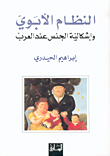
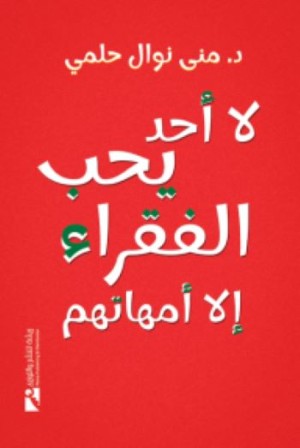
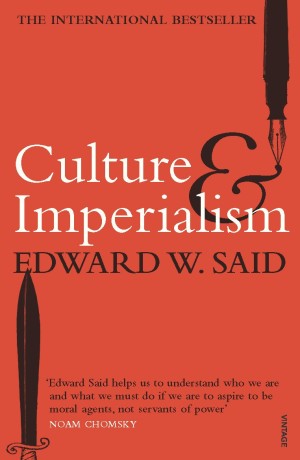
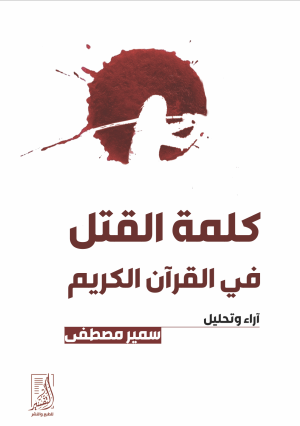
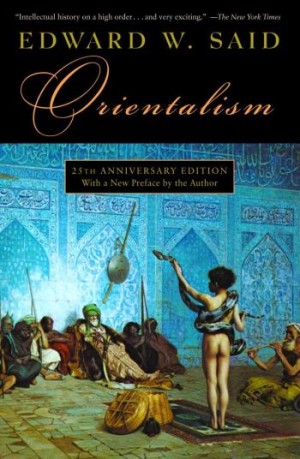
star - 4 months ago
I need this book pdf
Admin - 5 years ago
من ارشيف تعليقات القراء 2007
name: Ali Tal
The Patriarchal System and the issue of Sex for Arabs by Professor Ibrahim al Haidari is a vivid history of censorship and suppression of the Arab female. The author is provocative and disarmingly mischievous in confronting the manner of the Arab men’s machismos.
In this age of instant communication Professor al Haidari contends that the truly cultivated person is not the one who has read a book, but the one who understands the book's place in our culture. Although this book draws on examples from the works of European anthropologists, the author boldly examines the many kinds of ingrained patriarchal Arab taboos and their historical evolutions from the primordial matriarchal ethos of Semites. I was quite fascinated by the evolution and the masculinising of the cult of the mother Goddess Ishtar and the discussions of the many potentially nightmarish situations that followed in the male’s subjugation of the female. Although, at heart, this book challenges every Arab man who has ever felt guilty about the lowly position of the Arab woman, the author seems to ask him, ‘Well, what are you going to do about it?’ The truth, of course, is the Arab male speaks from a position of headship therefore how and why he would spend much time talking about the society’s prejudices against his wife, mother, sister or daughter. Ultimately, it is the Arab woman who must understand that there are no more prophets to speak on her behalf and she alone could advance her situation. The governments and the courts that are banning her from the common, long struggle of the Arab against their European nemesis, are also preventing her from reading what was deemed bad for her. Altogether, Professor Ibrahim al Haidari s book constitutes an important reflection and judgment of the current Arab values as well as the superb pleasure yielded by reading the book itself as a literary work.
To Adel Darwish. Perhaps you are right that not all who speaks Arabic is an Arab, however everybody who speaks Arabic is ethically Semitic. Further, just as the northern Europeans have taken over the Latin and Greek languages as an extension of to their own tongues, even during the Roman and Byzantine empires, Aramaic inherited all the earlier Semitic languages and for millennia remained the lingua franca of trade and commerce in Mediterranean basin until Arabic took over.
Sadly, there is an oversight in the eastern (al Mashriq) Arabs regarding the originality of the western Arabs (al Magrib). This is a dangerous reading. Early on in history both the Egyptians and the Phoenicians established trading posts along the Mediterranean coasts and south round Mauretania and north round the Iberian peninsula on the Atlantic cost. The Phoenician trading ships did business with England, France, Holland and further north they also circumnavigated Africa. Meanwhile the Mesopotamians ships sailed around India. Later, these Phoenician settlements were included in the Carthaginian empire and ruled the western Mediterranean for an epoch. For nearly three centuries Carthage fought Rome in the Punic wars. (when I travelled in Portugal and Spain, I was amazed how many cities and villages could trace their origins back to the Phoenicians or the Arabs.)
It is interesting to mention when first the Middle Eastern culture was Hellenised (infiltrated) by the Persians, the Phoenician cities of along the Syrian coast refused to carry on their ships the Persian armies to attack Carthage but agreed to help them against the Greeks.
Like al Mashriq, Al Magrib also suffered the Roman then Byzantine rules before they were reclaimed to the Semitic people by the Arabs. North African Christian Saints like Augustine enriched the Roman Catholic church.
name: Sarah Mortada
The irrefutable fact that our learned author exposes is that women enjoyed greater respect in antiquity than in the middle ages. This turn around was probably brought about by the three Abrahamic faiths. Western women only started to enjoy some equality after the church’s grip on their societies waned. I can only conclude that muslim women will remain abused until their cultures undergo a movement for enlightenment.
name: Borhan Riad
This excellent book explains at length the range of direct and indirect ways through which women have been subjugated and eventually forced to loose confidence in themselves. I was delighted that the author did not absolve western societies from this phenomena but merely pointed out that the situation in the Arab world was even worse.
name: محمد عابد
مما لا شك فيه أن المرأة العربية تتعرض لاضطهاد شامل ومتعدد الأبعاد (يعدد هذا الكتاب باقتدار أربعة أشكال رئيسية لهذا الاضطهاد)ومما لا شك فيه أيضا أن هذه النظرة الدونية للمرأة ناتجة عن حالة التخلف التي تعيشها مجتمعاتنا، لكنها في الوقت ذاته سببا مباشرا في تفشي التخلف وصعوبة الخروج منه، والسؤال المطروح هو كيف نخرج من هذه المعضلة، كيف نكسر هذه الحلقة المفرغة؟
name: jassim
تسيطر على بلادنا للأسف أقليات تنتمي للغرب عقائديا وفكريا أكثر مما تنتمي لمجتمعاتها وتقاليدها ودينها، وهذا الكتاب نموذج آخر لانسياق هذه الأقليات الآعمى وراء الأفكار الغربية الدخيلة على مجتمعاتنا، فللمرأة دورها الأساسي المحورى في رعاية الأسرة، ولو رضت المرأة بهذا الدور الكريم والنبيل الذي حدده الله لها لاستقامت بلداننا وانصلحت الأحوال، ولتوقف هذا الخلط المتعمد بتصوير العلاقة بين الرجل والمرأة على أنها علاقة صراع وتصادم بدلا من علاقة المودة والاحترام المتبادل في إطار نظام كوني متكامل حدده الخالق لأنه الأقدر على معرفة طبائع خلقه.
name: Clive Ramsey
I find the discussion interesting.
It is easy to deamonise other cultures.
I find some things hard to accept though.
It is readily accepted within western socity that ideas and precepts will be challenged.
This is a great strength.
It is an essential element of dialectics and leads to growth.
I am sure that your prophet himself had difficulties in challenging people in his time.
The initial reaction to having our ideas challeneged is a defensive one.
Such was the behaviour of many Christian people to the film The Life of Brian.
Yet for those with open minds it had enormous potential for understanding and developing their Christain beliefes.
I am sure that Jesus himself would have found it very funny and laughed inwardly so as not to upset his touch followers.
It is so easy to be very righteous in judging others make up and behaviour and yet not apply ourselves to our oown weaknesses.
Why id homosexuality so harshly judged in many Muslim countries when men are still happily enjoying four wives?
The circumstances whereby the Phrophet allowed this are long passed. It was intended as a kindness, caring for the welfare of women who would otherwise be unprotected.
If one man has four wives then it is natural that three are likely to have none.
What are they to do for comfort and companionship?
Would many of those who rise in eloquent language really care to be Gay or Lesbian in some of these countries.
There are contradictions that have to be faced in the equality of people and sexes.
If Arab associating countries want respect they need to improve their human rights record, not aquire arms.
They need to respect other people who are different to them.
This was the case during the life of The Prophet so why should it not be so now?
Or am I ill informed.
Did The Prophet not have Jewish assistants for example and let them practice their religion unmolested?
Did he not preach tolerance.
I only know what I learn from speaking to friends who quietly defend their faith.
Thanks and God Bless All.
name: Amani Amin
Thank you for your message. You are certainly entitled to your views as we are entitled to ours. Egyptians, Tunisians, Algerians... etc belong to their respective countries but are also Arabs. There is no contradiction. Being an Arab in the modern sense is not an ethnic question. It does not mean a descendant from the tribes of Arabia. It is a sense of affiliation, a rational choice people have made to become part of a larger nation without in any way undermining their national characteristics. For example the official name of Egypt is the Arab Republic of Egypt. Yet no one in Egypt denies that Egyptians are the descendants of the pharaohs not the tribes of Arabia. All Arab countries have chosen to become part of the League of Arab States. For Arab countries who gained independence after the establishment of the League, joining it was a matter of utmost priority, an affirmation that at last they had achieved independence. This is a matter of national identity not merely a function of speaking the same language. That is different from the United States and England or Spain and Mexico, who - despite their affinities - have not chosen to consider themselves part of the same nation.
Having said that, Arab World Books would be pleased to put forward the opinion you have raised to a general discussion. We can either use the message you have sent us as a starting point, or if you prefer, you can further elaborate your views. In any case we encourage a calm and objective discussion of topics of importance to the Arab world.
Thanks again for your view.
name: Adel Darwish- mideast news
I am sick and tired of this ignorance of lumping every one who lives in country that happened to speak some form of Arabic, or joined the Arab league for political reasons as Arab.
This is most ridicules.
Look at the six poems chosen.
1- Egypt is NOT an Arab nation, vast majority of population are NOT Arab , Arabs are less than 8% or perhaps 5% of population
2- Algeria, vast majority of over 80-85% are Amazigh Berber and other African tribes
3- Same goes for Morocco and if, as Moroccans claim, include the Spanish Sahara, then Arabs become less than 5% of population.
4- In Tunisia they are less than one Third of population.
So who don't you call it something more credible like. how did Arabic language literature dealt with Sex?
You are supposed to be educated and intellectuals for god's sake !
Do you think that speaking English makes a Canadian or a South African an Englishman?
Or would speaking Spanish makes a Cuban or a Mexican a Spaniard?
Adel
name: Andy
I have a friend who's ethnic Pashtun of northwest Pakistani descent (one of the groups and areas with a reputation for sexual repressiveness - Muslim, but admittedly not Arab), who has said to me that the west misunderstands the taboos of other societies very greatly - that the repressiveness there is not about sex at all, but about preservation of family lineage - that people must appear to be part of the marriage and kinship network systems and not publicly dishonour them - but that any kind of activity which is not disruptive of these systems, or which is publicly concealed, is tolerated and viewed as normal. Even to the point where it's half-expected that married people will have affairs with people they're "really" attracted to, have children who might not be their official partner's, etc. According to Wikipedia, up to half of Pashtun men in Afghanistan have had same-sex sexual experiences. Pretty amazing since this is the main group the Taleban are drawn from.
It makes me wonder how much western perception is inflected by the west's own demons so to speak. I think the image of the Christian fundamentalist in southern America is projected outwards onto Muslims and other religions a lot (witness for instance the references to "ranting", "mad mullahs" and so on - I've seen a few extreme figures interviewed and they express very extreme views but they do so very calmly, I've never once seen them act mad, "rant" or "spew" - on the other hand, Christian fundamentalists DO "rant" and "spew" very explicitly). Western "extremisms" are necessarily connected to mass society - they acquire a certain inhuman generality and violence as a result. I suspect superficially similar beliefs are much more nuanced and less sledgehammer-like in the context of socially dense societies where detection capabilities are low and the "rules" are as much matters of custom (or common law) as top-down law.
The tropes, "Third World countries are traditional", "Third World countries are patriarchal" and "Third World countries mistreat their women" are closely connected, linked to the idea of the "Third World" as identical to the west's medieval past and as a static space without history waiting for western developers to come along and free it. Spivak discusses this in "Can the Subaltern Speak" in terms of the idea of "white men saving brown women from brown men". Peter Rigby discusses various works on the Ilparayuko Maasai in a similar perspective - the existence of gender-roles is twisted into a western image of men "owning" women, when the Ilparayuko don't even have a word for "ownership". And Slater discusses it in detail in "Geopolitics and the Postcolonial". In fact the "Third World" is very diverse, very much "historical" and changing over time, and is a product of a specifically modern history in which western colonialism and other kinds of plunder, domination and silencing play major roles. The western kind of account is often a way to "write out" the history of colonialism, the downside of the west, and the voices and achievements of non-western peoples.
Of course this also produces a reflection back on the west - the idea that the west is sexually liberated, that western women are equal to men, and so on - which of course is false. For one thing, western sexual liberation is still limited by the influence of Christian fundamentalists and their ilk, and is far more uneven than is usually thought (witness for example the way the tabloid press can simultaneously profit from pictures of semi-naked women, and act shocked at the revelation that politicians and celebrities have sex). For another, it is connected to a specific pornographic/advertising discourse of "repressive desublimation" which exploits sexuality for profit and reproduces a patriarchal imaginary. Third, women are by no means equal to men in the west, and it is questionable whether western women on average have more power than women in other societies - women have the right to forego gender roles, but at certain costs (usually including missing out on family life), and with structural inequalities such as average wage differences and the "glass ceiling" very much still in place. One also has to take into account the unusual prevalence of sexual and sexually-inflected violence against women in western societies, and the semi-obligation to "look beautiful". And the reverse side, that men are also judged by gender-specific roles (witness the recent movements around fathers' rights for example). I suspect also that sex has a peculiar centrality in western culture deriving from its historical repression - whereas a "non-repressed" sexuality would presumably be simply an aspect of life, in the west it still tends to be the organising centre of life.
None of which is to say that there aren't repressive aspects of other societies... just that these should be looked at contingently, not in terms of a projected discursive frame, and not compared to an idealised view of the west. I generally take claims of oppression more seriously when they're coming from the oppressed themselves, rather than from outside observers. This said, there obviously are voices from the Muslim and Arab worlds who object to sexual repression and/or sexism, RAWA and OWFI for example. I've seen portrayals of sex from Muslim perspectives which seem to fall pretty easily into the Reichean mould of repression (the tempting woman as evil force for instance); I sometimes wonder if this kind of repression isn't wired into monotheism in some way (the phallic function of God in monotheist religions, the valuing of transcendence over immanence). The danger here is that the defence of one tradition can pass over into the persecution of "other others" - the involvement of Muslim activists in the persecution of West Papuans for example, which is connected into the attempt to keep Papua in "Muslim" Indonesia and the suppression of "indecency".
bw
Andy